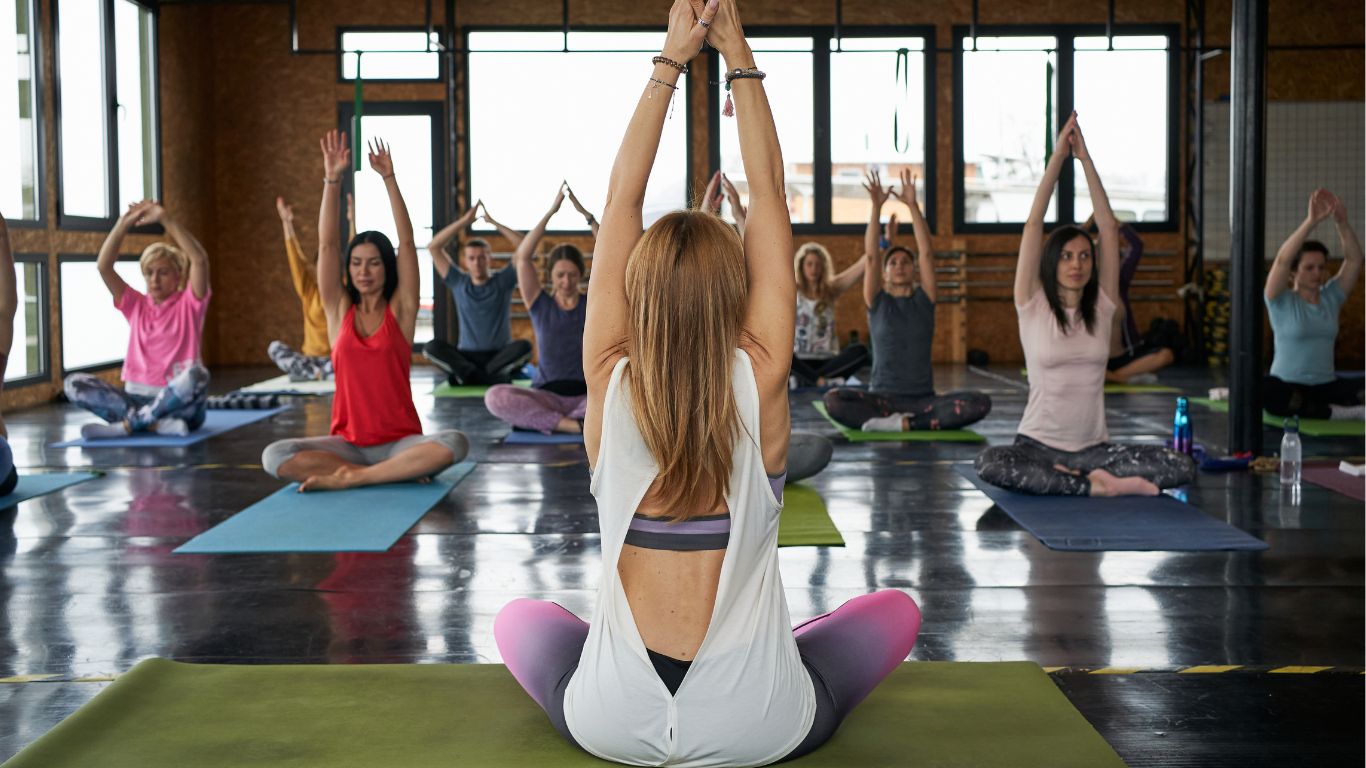Introduction:
In the midst of life’s chaos and demands, finding moments of tranquility is essential for maintaining overall well-being. The ancient practice of yoga, originating in India, has evolved into a beacon of serenity for people worldwide. Regardless of age, fitness level, or lifestyle, yoga offers a holistic approach to physical and mental wellness.
The Benefits of Yoga:
Physical Well-being: Yoga is renowned for enhancing flexibility, strength, and balance. Through various poses or asanas, it targets different muscle groups, contributing to overall physical health. The gentle yet effective nature of yoga makes it suitable for individuals of all fitness levels.
Stress Reduction: One of the most celebrated benefits of yoga is its ability to reduce stress and anxiety. The practice of mindfulness and controlled breathing fosters a sense of calm, promoting better mental health and emotional well-being. In a world that often feels overwhelming, yoga provides a sanctuary for relaxation.
Improved Posture: Modern lifestyles often involve prolonged periods of sitting, leading to poor posture and discomfort. Yoga encourages awareness of body alignment, resulting in improved posture. This increased body awareness can alleviate the physical strain associated with sedentary activities.
Increased Energy: Regular yoga practice has been shown to boost energy levels by enhancing circulation, oxygenating the body, and reducing fatigue. Instead of relying on stimulants, incorporating yoga into your routine can provide a natural and sustained energy boost.
Mind-Body Connection: Yoga emphasizes the intricate connection between the mind and body. Through mindfulness and focused attention on the present moment, practitioners develop a heightened sense of self-awareness. This mind-body connection is crucial for maintaining a harmonious and balanced lifestyle.
Getting Started with Yoga:
Choose the Right Style: With various styles of yoga available, ranging from gentle to dynamic, it’s essential to find one that aligns with your preferences and goals. Experimenting with different styles will help you discover the practice that resonates with you.
Start Slow: For beginners, starting with basic poses and gradually progressing is key. Patience is fundamental, and listening to your body prevents injury. The beauty of yoga lies in its adaptability to individual needs and abilities.
Use Props: Props like yoga blocks, straps, and bolsters can assist in achieving proper alignment and make the practice more accessible, especially for beginners. Don’t hesitate to incorporate these tools into your practice as needed.
Find a Qualified Instructor: Consider joining a class or following online tutorials led by experienced instructors. Proper guidance ensures that you perform poses correctly and safely. Instructors can provide valuable feedback to help you refine your practice.
Establish a Routine: Consistency is paramount in reaping the benefits of yoga. Set aside dedicated time for your practice, even if it’s just a few minutes each day. Establishing a routine makes yoga an integral part of your lifestyle.
FAQs:
Can I do yoga if I’m not flexible?
Absolutely! Yoga is about progress, not perfection. Regular practice improves flexibility over time, and many poses have modifications to accommodate different levels of flexibility.
Is yoga only for the young and fit?
No, yoga is truly for everyone. Regardless of age, body shape, or fitness level, there are modifications for all poses. Yoga is a journey that adapts to your unique needs and capabilities.
How often should I practice yoga?
Consistency is more important than frequency. Aim for at least 2-3 sessions per week, adjusting based on your schedule and personal preferences. The key is to integrate yoga into your routine in a way that feels sustainable for you.
Can I do yoga if I have an existing medical condition?
Consulting your healthcare provider before starting yoga, especially if you have medical concerns, is crucial. Many medical conditions can benefit from modified yoga practices, but it’s essential to ensure that the practice aligns with your health goals.
What do I need to start practicing yoga at home?
To start practicing yoga at home, all you need is a yoga mat and comfortable clothing. While props like blocks and straps can be beneficial, they are not essential for beginners. As you progress, you can gradually explore additional tools that enhance your practice.
Conclusion:
In conclusion, yoga offers a versatile and inclusive path to finding zen in our hectic world. The practice’s transformative power extends beyond the physical, encompassing mental and spiritual well-being. Whether you’re a beginner taking the first steps on this journey or an experienced practitioner deepening your practice, the benefits of yoga are accessible to everyone. By incorporating yoga into your routine, you embark on a holistic journey toward balance, peace, and well-being.
